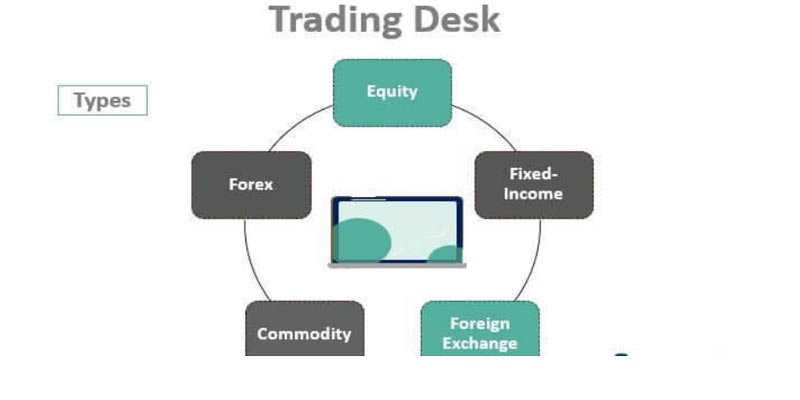Growth ETFs have quickly become popular for investors wishing to diversify and grow their portfolios. Whether you're looking to tap into international markets, invest in tech stocks, or hedge your bets with a defensive strategy, there is an ETF out there with the potential to meet all of your growth needs. But which ones are the best?
We'll explore some of the top-performing Growth ETFs available today, so you can make an informed decision about investing in one that fits your objectives. Keep reading for all the must-know details.
Growth ETFs

Growth ETFs are exchange-traded funds that primarily invest in stocks of companies with a history or potential for above-average growth. This type of investment strategy seeks to capitalize on the stock market's upward momentum and can benefit investors looking for higher returns than traditional index funds offer. The goal is to provide long-term capital appreciation through investing in high-growth companies.
Types of Growth ETFs

Various Growth ETFs are available, each with its focus and strategy. The following outlines some of the most popular types:
International Equity
These ETFs invest in equities of companies located outside the United States. Investing in foreign markets allows investors to gain exposure to economies with different risk profiles while diversifying their portfolios.
Technology
Tech stocks have been rising for years due to their potential for high returns and innovation. These ETFs seek to capitalize on this trend by investing in established tech companies and startups that may become market leaders.
Defensive Strategies
Defensive strategies such as low volatility or value investing involve taking a more conservative approach to growth investing by focusing on more stable and less volatile stocks.
Best Growth ETFs
Now that you understand the different types of growth ETFs available let's take a look at some of the top performers:
- iShares Core S&P 500 ETF (IVV) - This ETF invests in 500 of the largest U.S. companies and is one of the most popular choices for investors who want exposure to blue chip stocks such as Apple, Microsoft, Amazon, and Google.
- Vanguard Total World Stock Market ETF (VT) - This ETF provides broad exposure to over 7,200 stocks worldwide across developed and emerging markets. It also offers low expenses compared to other international equity funds.
- Invesco QQQ ETF (QQQ) - This tech-focused ETF invests in the 100 largest non-financial companies listed on the Nasdaq stock exchange. It exposes some of the most innovative and cutting-edge companies in the market.
- iShares Edge MSCI USA Value Factor ETF (VLUE) - This defensive ETF seeks to provide long-term capital appreciation by investing in stocks of companies with attractive valuations. It is comprised of the largest and most liquid stocks in the U.S.
Investing in Growth ETFs can be a great way to diversify and grow your portfolio, but it's important to understand the risks involved before making any decisions. Doing your research and understanding the different types of ETFs available will help ensure you make an informed decision that is right for your objectives.
Benefits of Investing in ETFs
Exchange-traded funds (ETFs) have become increasingly popular with investors as they provide a way to diversify and grow their portfolios.
Here are Some key advantages:
1. Low Cost
One of the biggest benefits of ETFs is that they offer low-cost investment opportunities compared to other investments. ETFs are traded on exchanges and can be bought or sold like stocks, so they don’t require a broker or financial advisor to purchase them.
2. Diversification
ETFs provide an easy way for investors to diversify their portfolios by investing in multiple companies, sectors, or markets with one purchase. This helps spread out risk and makes it easier to manage your investments.
3. Tax Efficiency
ETFs are also tax efficient compared to other types of investments. Since they are traded on exchanges, ETFs are subject to lower capital gains taxes than mutual funds, making them a great option for investors seeking to minimize their tax burden.
4. Liquidity
ETFs are also highly liquid investments, meaning investors can easily buy and sell them anytime during trading hours on the exchange. This makes ETFs a great option for those looking to take advantage of short-term market movements or capitalize on arbitrage opportunities.
5. Professional Management
Most ETFs are managed by professional asset managers who analyze and track the markets for you. This makes it easier to stay on top of market trends without actively managing your investments.
6. Transparency
ETFs offer greater transparency than other investments, as prices are publicly available in real-time throughout the trading day. This makes it easier for investors to decide when to buy and sell their investments.
ETFs provide a great way to diversify and grow your portfolio while taking advantage of low-cost investment opportunities, tax efficiency, liquidity, professional management, and transparency.
Drawbacks of Investing in ETFs
Despite their many advantages, investors should be aware of some drawbacks to investing in ETFs.
1. Tracking Error
Tracking error differs between an ETF’s performance and its underlying index. This can happen if the ETF does not accurately reflect the composition or weightings of its index.
2. Market Volatility
Like all investments, ETFs are subject to market volatility, so their performance can fluctuate over time. As such, it’s important to understand your risk tolerance before investing in an ETF to know what kind of losses you may be willing to accept during a downturn.
3. Lack of Dividend Income
Unlike stocks, ETFs do not pay out dividends, which means they cannot provide a steady income stream like stocks or mutual funds.
4. Expense Ratios
ETFs typically have higher expense ratios than other investments, so it’s important to consider this when comparing ETFs to other investments.
5. Lack of Control
Finally, since ETFs are passively managed funds, investors have little control over the specific stocks or sectors that make up their portfolios. If you’re looking for more control over your investments, a mutual fund may be a better option.
Performance History of Each ETF
Now that you know the advantages and disadvantages of investing in ETFs, it’s important to also consider the performance history of each one you are interested in. To do this, look at past performance records and compare them with other ETFs or even stocks to get an idea of how risky or volatile your potential investments might be. Additionally, take the time to study each ETF’s prospectus to better understand its associated risks and ensure that it aligns with your risk tolerance and financial goals.
FAQS
What is an aggressive growth ETF?
An aggressive growth ETF is an exchange-traded fund (ETF) focusing on investments in rapidly growing companies and sectors. These ETFs typically have higher risk levels than others but may offer higher returns.
How many growth ETFs should I own?
The number of growth ETFs you own should depend on your risk tolerance, financial goals, and investment time horizon. Generally speaking, it’s recommended to diversify your holdings and not put all your eggs in one basket by investing in a few different growth ETFs.
Can ETFs make you rich fast?
No. While ETFs are a great way to diversify your investments and can offer higher returns than other investments, they cannot guarantee riches quickly. As with any investment, there is always the risk of loss, so it’s important to understand your risk tolerance before investing in an ETF or any other type of security.
Conclusion
Taking a closer look at the best growth ETFs is essential for taking advantage of their potential returns. These exchange-traded funds can be an incredibly powerful tool when added to any portfolio. To find the best growth Exchange Traded Funds, you must research and consider various markets and investment strategies to measure performances. Some have drastically outperformed others in recent years, and these should be considered when selecting your chosen ETFs.




